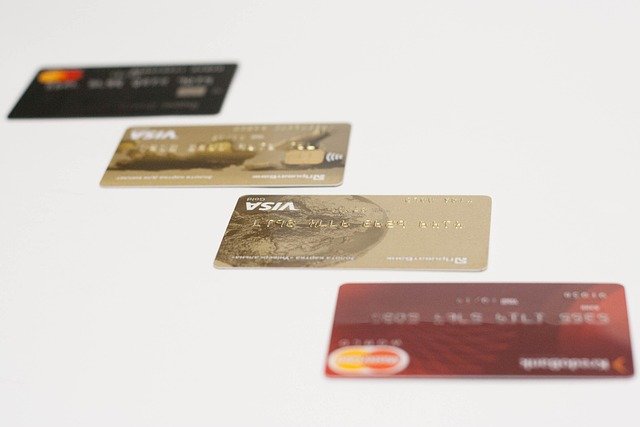Essential Insights on Personal Loans in Spain
Loans provide financial flexibility for various needs, but understanding their structure is crucial before making an application in Spain. By being informed about interest rates, repayment terms, and eligibility criteria, individuals can make better decisions tailored to their financial situations. This understanding ensures that borrowers can navigate the loan landscape effectively.

Understanding the Basics of Personal Loans in Spain
Personal loans in Spain function similarly to those in other European countries, but with specific local regulations and practices. These loans typically range from €1,000 to €75,000 with repayment terms between 1 and 10 years. Spanish banks and financial institutions offer both secured and unsecured personal loans, with unsecured options being more common for smaller amounts. Interest rates in Spain generally fall between 4% and 15% depending on factors such as creditworthiness, loan amount, and repayment period.
The Spanish banking system distinguishes between “préstamos personales” (personal loans) and “créditos al consumo” (consumer credits). Personal loans provide a one-time lump sum with fixed repayment terms, while consumer credits are more flexible revolving credit lines, similar to credit cards but typically with lower interest rates. Most traditional Spanish banks require borrowers to have a bank account with them before applying for a personal loan, although online lenders and fintech companies have introduced more flexible options in recent years.
Key Factors to Consider Before Taking Out a Personal Loan
When contemplating a personal loan in Spain, your credit history plays a crucial role in determining eligibility and interest rates. Spain uses a credit scoring system maintained by organizations like ASNEF (Asociación Nacional de Entidades de Financiación) and RAI (Registro de Aceptaciones Impagadas). Being registered in these databases for unpaid debts can severely impact loan approval chances. Before applying, it’s advisable to request your credit report to understand your standing.
The total cost of the loan extends beyond the advertised interest rate. Spanish lenders often charge opening fees (comisión de apertura) ranging from 1% to 3% of the loan amount, early repayment penalties (comisión de cancelación anticipada), and sometimes study fees (comisión de estudio). The Annual Percentage Rate (APR or TAE in Spanish) provides a comprehensive view of these costs and should be the primary comparison metric rather than the nominal interest rate alone.
Loan terms in Spain can significantly impact monthly payments and total cost. While longer terms reduce monthly payments, they increase the overall interest paid. Most Spanish lenders offer flexibility in repayment periods, allowing borrowers to choose terms that align with their financial circumstances. Additionally, some lenders provide features like payment holidays or the ability to adjust payment dates, which can be valuable for managing financial stability over the loan period.
Steps to Take When Applying for Personal Loans in Spain
The application process for personal loans in Spain typically begins with gathering necessary documentation. Spanish lenders require a valid ID (DNI for citizens or NIE for foreigners), proof of income (usually the last three payslips or tax returns for self-employed individuals), bank statements from the last 3-6 months, and proof of residency. Non-residents or those with limited credit history in Spain may need to provide additional documentation or guarantors.
Online applications have become increasingly prevalent in the Spanish banking sector. Many traditional banks and fintech companies allow applicants to complete the entire process digitally, often with decisions provided within 24-48 hours. Digital verification methods have streamlined the process, though some lenders still require in-person verification for certain loan amounts or types. Comparison websites like Kelisto and Rastreator allow borrowers to compare multiple loan offers simultaneously.
After approval, understanding the contract terms is crucial. Spanish loan agreements must clearly state the loan amount, interest rate, APR, repayment schedule, fees, penalties, and early repayment conditions according to consumer protection laws. The Law 16/2011 on Consumer Credit Contracts provides borrowers with a 14-day cooling-off period during which they can cancel the loan without penalties. It’s advisable to have a financial advisor review the contract before signing, particularly for loans with complex terms or high amounts.
Personal Loan Costs and Provider Comparison in Spain
The Spanish personal loan market features numerous providers with varying rates and conditions. Traditional banks typically offer lower interest rates but have stricter eligibility requirements, while online lenders provide faster approval with higher rates. Below is a comparison of common personal loan providers in Spain:
| Provider | Typical Interest Rates | Loan Amounts | Key Features |
|---|---|---|---|
| BBVA | 4.95% - 8.95% | €3,000 - €75,000 | No opening fees for online customers, free early repayment |
| CaixaBank | 5.50% - 8.95% | €1,000 - €60,000 | Flexible repayment options, loyalty discounts |
| Santander | 5.95% - 9.95% | €5,000 - €90,000 | Quick approval for existing customers, optional payment protection |
| ING | 5.95% - 10.95% | €3,000 - €50,000 | 100% online process, no opening fees |
| WiZink | 8.95% - 18.95% | €1,000 - €30,000 | Approval for lower credit scores, no bank account required |
| Cofidis | 6.95% - 19.95% | €1,000 - €15,000 | Fast approval, accepts temporary contracts |
Prices, rates, or cost estimates mentioned in this article are based on the latest available information but may change over time. Independent research is advised before making financial decisions.
Beyond the advertised rates, borrowers should consider the loan’s total cost including all fees. For a €10,000 loan over 5 years, the difference between a 5% and 8% interest rate amounts to approximately €1,600 in additional interest paid. Some Spanish lenders offset lower interest rates with higher fees, making the APR comparison essential. Digital-only lenders often offer more competitive rates due to lower operational costs but may have more stringent early repayment penalties.
Regulatory Framework for Personal Loans in Spain
Personal loans in Spain are regulated by the Bank of Spain (Banco de España) and must comply with consumer protection legislation. The Law 16/2011 on Consumer Credit Contracts establishes transparency requirements, ensuring lenders provide clear information about loan costs and terms. This regulation caps early repayment fees at 1% of the amount repaid early (0.5% if less than one year remains on the term).
The Spanish government has introduced additional protections against predatory lending practices, including interest rate caps on certain types of loans and cooling-off periods. The CIRBE (Central de Información de Riesgos del Banco de España) maintains credit histories and requires lenders to report loan information, helping prevent overindebtedness. Borrowers facing difficulties with lenders can file complaints with the Bank of Spain’s Customer Service Department, which provides a mediation mechanism for resolving disputes.
Personal loans in Spain represent an important financial tool when used responsibly. By understanding the market specifics, comparing offers thoroughly, and being aware of rights and obligations, borrowers can make choices that align with their financial goals while minimizing costs and risks.




